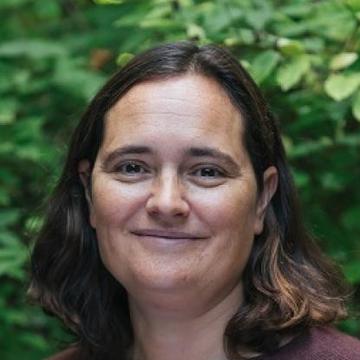Charlotte Williams

Professor Charlotte Williams OBE FRS
Professor of Inorganic Chemistry
My research focuses on new sustainable technologies for polymer production and carbon dioxide usage. I develop highly active catalysts that transform abundant renewable resources and wastes into polymers. These catalysts enable natural bio-chemicals and carbon dioxide to replace petrochemicals in scalable materials production. Recent discoveries include bimetallic, synergic catalysts for low-pressure carbon dioxide copolymerizations; switch catalysis using monomer mixtures to produce new polyesters, -carbonates and -ethers; iso-selective lactide ring-opening polymerization; colloidal nanocatalysts for carbon dioxide hydrogenation and high performance sustainable polymers. By combining expertise in catalysis and polymer chemistry, my goal is to deliver materials with better properties than today’s petrochemicals and which are designed for end-life recycling and (bio)degradation.
Carbon Dioxide Co-Polymerization Catalysis
Our catalysts show high activity, selectivity and control in carbon dioxide/epoxide copolymerizations to make polycarboantes. These polymers are 30-50 wt% comprised of carbon dioxide enabling a triple win in reducing greenhouse gas emissions– for every molecule of carbon dioxide used, two more are saved by avoiding petrochemicals. The polymers have properties well-suited to applications including as polyols, coatings, resins and ductile plastics. Our catalysts comprise earth-abundant and inexpensive metals such as Zn(II), Mg(II), Na(I) and Fe(II/III) and we have pioneered synergic heterodinuclear catalysts. In 2020, we proposed the molecular basis for synergy, rationalizing the different roles for the two metals. Our low pressure, high activity catalysts are relevant to processes that retro-fit existing polyol manufacturing plant as well as to new build. The catalysts show high tolerance to common impurities in captured carbon dioxide, such as water, oxygen or carbon monoxide.
Switchable Catalysis Using Monomer Mixtures to Make Ordered Multi-Block Polymers
We have developed a form of switchable polymerization catalysis whereby a single catalyst selectively transforms monomer mixtures, accessing different polymerization cycles, into specific block polymer sequences. We uncovered the ‘rules’ determining monomer enchainments and these rules are generally applicable to other metallic, organometallic and organo-catalysts and to many monomers. The switchable polymerization catalysis efficiently and quantitatively yields new types of multi-block polyesters,-carbonates and ethers. We use it to make tough and ductile carbon dioxide-derived plastics, strong bio-derived pressure sensitive adhesives and high elasticity thermoplastic elastomers.
Isoseletive Lactide Ring-Opening Polymerizations
Polylactide (PLA) is a commercial bio-derived plastic made from sugar and after use can be composted, biodegraded and or fully recycled. Controlling PLA stereochemistry is one way to improve properties, isotactic or stereoblock PLA shows a high melting temperature and tensile strength. We have discovered and investigated phosphasalen Group 3, 13 and lanthanide catalysts which combine high activities, low loadings, good control and high iso-selectivity. In collaboration with Paul Beer’s research team we discovered molecularly-interlocked rotax-2-ane iso-selective catalysts.
Sustainable Plastics and Elastomers
We develop controlled catalyses to make precision polyesters,-carbonates and ethers, maximising renewable resource useage. These polymers improve upon the petropolymers’ properties and are recyclable and biodegradable. Some are catalytically depolymerized to true monomer(s) whilst others are fully degraded using solvolyses. Through close collaboration with scientists and engineers, in academic and industrial laboratories, we are studying their use as commodity plastics, elastomers, coatings, specialities/additives, composites, solution self-assembled nanostructures, in formulations, medicine and soft robotics.
Colloidal Nanocatalysts for Carbon Dioxide Hydrogenation
Working with Milo Shaffer (Imperial College London), we make well-defined, ultra-small ZnO, ZnS, Cu, Cu2O and Cu2S nanoparticles from organometallic reagents. Using sub-stoichiometric quantities of ligands, such as carboxylic/phosphinic acids, yields high solubility colloidal nanoparticles. ZnO/Cu nanoparticles are high activity and selectivity solution catalysts for carbon dioxide hydrogenation to methanol.
Associated Research Themes:
Charlotte K. Williams is a professor of Inorganic Chemistry. She is an EPSRC Established Career Research Fellow. She heads-up a research group investigating polymerization catalysis and polymer chemistry with a particular focus on improving polymer sustainability. Her work involves close collaboration with scientists and engineers in both academic and industrial laboratories. In 2011, Charlotte founded econic technologies which sells catalysts and processes facilitating carbon dioxide utilization (http://econic-technologies.com/). From 2003-2016, Charlotte was an academic in the Chemistry department at Imperial College London, serving as Head of Inorganic Chemistry teaching and Head of Materials Chemistry. Earlier in her career, she was a postdoctoral researcher at Cambridge University (2002-2003), working with Andrew Holmes and Richard Friend (Organometallic polymers for electronics), and at the University of Minnesota (2001-2002) working with Bill Tolman and Marc Hillmyer (zinc catalysts for lactide polymerization). She obtained her BSc and PhD from Imperial College London, the latter supervised by Vernon Gibson and Nick Long on ethene polymerization catalysis. Her work has been recognised by prizes and awards including an OBE (2020), Macro Group UK Medal (2019), The Dechema Otto Roelen Medal (2018), The UK Catalysis Hub Sir John Meurig Thomas Medal (2017), the Royal Society of Chemistry Corday Morgan Medal (2016) and the Women in Science and Engineering Tech-Start Up Award (2015).
Contact
charlotte.williams@chem.ox.ac.uk
01865 285148
PA: Nadia Casimiro
Research group
College
The SCHEMA Hub
The Sustainable Chemicals and Materials Manufacturing Hub (SCHEMA)




